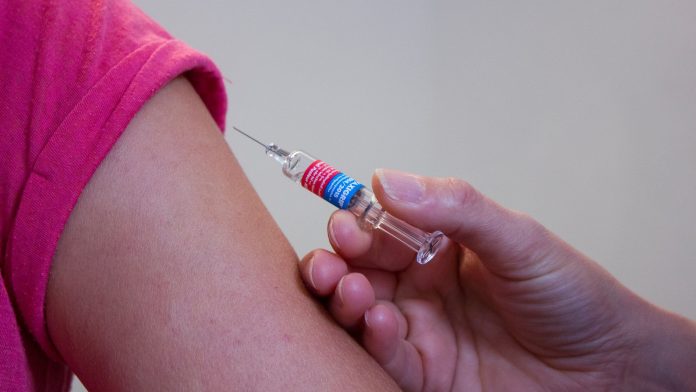
The European Commission has issued a set of recommendations for how the EU can strengthen co-operation in the fight against preventable diseases that can be avoided by vaccines.
These recommendations to fight against preventable diseases come after the president of the commission, Jean-Claude Juncker, called for action to increase vaccination coverage and ensure that everyone in the EU has access to vaccines in his 2017 State of the Union address.
Vaccinations save between one and three million lives worldwide annually. According to the World Health Organization, over the next decade, vaccines will save 25 million more lives.
However, the ECDC have said that several EU countries are facing unprecedented outbreaks of measles and a resurgence of other vaccine-preventable diseases due to insufficient vaccination coverage, and children and adults in the EU are still dying from these diseases.
Most powerful public health measures
Vytenis Andriukaitis, commissioner for health and food safety, said: “Vaccination is one of the most powerful and cost-effective public health measures developed in the 20th Century. As a medical doctor, I find it disheartening to witness children dying because of low uptake, vaccine hesitancy, or vaccine shortages.
“Infectious diseases are not confined within national borders. One member state’s immunisation weakness puts the health and security of citizens at risk across the EU. Co-operating in this area is in all of our interests. Protect our children: vaccinate!”
The commission’s proposal
The new proposal focuses on three main pillars for action:
- Tackling vaccine hesitancy and improving vaccination coverage;
- Sustainable vaccination policies in the EU; and
- EU co-ordination and contribution to global health.
It calls for 20 solid actions by the commission and member states, including:
- Developing and implementing national and/or regional vaccination plans by 2020, including a target of at least 95% vaccination coverage for measles;
- Introducing routine checks of vaccination status and regular opportunities to vaccinate across different stages of life, for example in schools and workplaces;
- Establishing a European vaccination information portal by 2019 to provide online objective, transparent and updated evidence on the benefits and safety of vaccines;
- Convening a coalition for vaccination to bring together European associations of healthcare workers as well as relevant students’ associations in the field, to commit to delivering accurate information to the public, combatting myths and exchanging best practice;
- Establishing a European information sharing system to gather knowledge and develop guidelines for a core EU vaccination schedule by 2020 with doses and ages that EU member states agree as being common to all countries; and
- Strengthening partnerships and collaboration on vaccination with international partners.
What are the next steps?
The commission’s proposal for a council recommendation will be discussed by the European Council, with the aim of seeing it adopted before the end of this year, with an immediate entry into force. Then, every three years the commission will report on progress made in the implementation of the recommendation.
Also, the commission will produce a report on ‘The State of Confidence in Vaccines in the EU’ to monitor attitudes towards vaccination, in the context of the state of health in the EU process.










